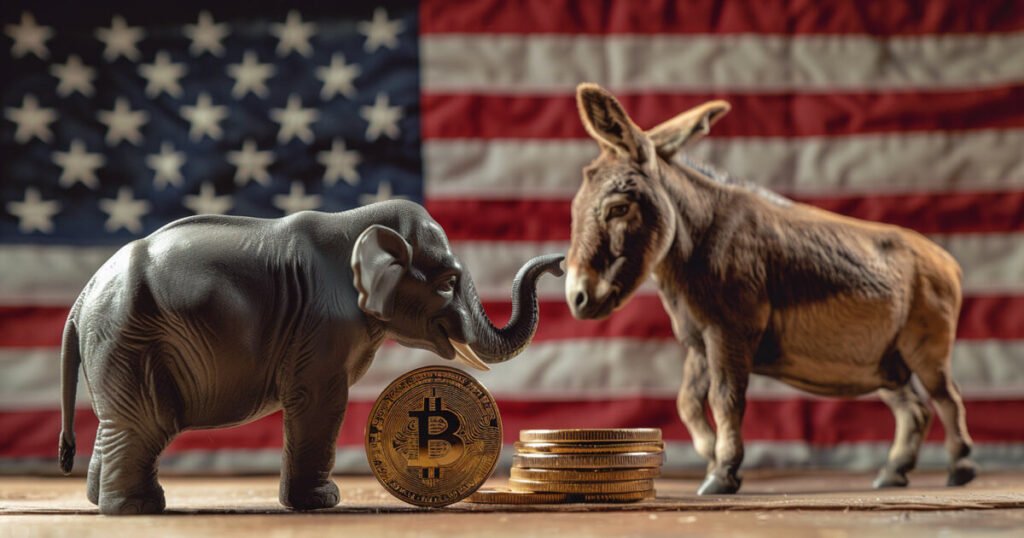Bipartisan Support Grows for Crypto in US Congress: A Game Changer for Regulation
Crypto regulation and policy are gaining traction in the US Congress, with increasing bipartisan support for the industry. While Republicans still dominate the pro-crypto stance, the negative sentiment towards crypto is dwindling. According to data from Stand With Crypto (SWC), 310 US politicians strongly support the crypto industry, while only 41 are firmly against it. This shift in political support has significant implications for the future of crypto legislation.
In the Senate, there is a notable partisan divide on crypto issues. While a substantial number of Republican senators are strongly pro-crypto, there is also some support on the Democratic side. However, a slightly larger contingent of Democratic senators has taken a strongly anti-crypto stance, indicating potential challenges in passing comprehensive legislation. In the House of Representatives, both Republican and Democratic representatives show strong support for the crypto industry, with a majority of Republicans and a notable number of Democrats aligning themselves as pro-crypto.
Recent legislative actions, such as the passage of the Financial Innovation and Technology for the 21st Century Act (FIT21) in the House, highlight the increasing momentum behind crypto-friendly policies. This bipartisan bill, aimed at establishing a regulatory framework for digital assets, received support from both parties, showcasing the potential for bipartisan cooperation on crypto legislation. As the 2024 election approaches, crypto is likely to become a key issue in political campaigns, with growing influence seen through the formation of crypto-focused Political Action Committees (PACs) fundraising for the upcoming elections.
While the Senate may present challenges for passing crypto legislation due to the partisan divide, the House of Representatives appears more amenable to pro-crypto initiatives. The minimal opposition in the House suggests a higher likelihood of crypto-friendly legislation passing, provided it garners sufficient backing from the pro-crypto majority. Looking ahead, navigating the different stances in both chambers and building bipartisan consensus will be essential for achieving meaningful legislative outcomes in the crypto industry.
As the US government continues to grapple with the regulation of cryptocurrencies, bipartisan support within the US Congress is on the rise. While Republicans currently dominate the pro-crypto side of the aisle, the negative sentiment towards the industry appears to be decreasing. Stand With Crypto (SWC) data reveals that 310 US politicians strongly support the crypto industry, while only 41 are firmly against it. This shift in political support has far-reaching implications for the future of crypto regulation and policy.
In the Senate, a partisan divide on crypto issues is evident, with a significant number of Republican senators aligning themselves as strongly pro-crypto. While there is some support from Democratic senators, a larger contingent has taken a strongly anti-crypto stance. The House of Representatives, on the other hand, presents a more favorable environment for crypto-related bills, with both Republican and Democratic representatives showing strong support for the industry. This bipartisan backing in the House suggests a higher likelihood of crypto-friendly legislation passing in this chamber.
Recent legislative actions, such as the passage of the Financial Innovation and Technology for the 21st Century Act (FIT21) in the House, underscore the increasing momentum behind crypto-friendly policies. This bipartisan bill, which aims to establish a regulatory framework for digital assets, received support from both Republicans and Democrats, highlighting the potential for bipartisan cooperation on crypto legislation. With the 2024 election approaching, crypto is expected to play a prominent role in political campaigns, with the industry’s growing influence demonstrated through the formation of crypto-focused Political Action Committees (PACs) fundraising for the upcoming elections.
While the Senate may present challenges for passing comprehensive crypto legislation due to the partisan divide, the House of Representatives appears more receptive to pro-crypto initiatives. The minimal opposition in the House indicates a greater likelihood of crypto-friendly bills passing, provided they receive sufficient support from the pro-crypto majority. Moving forward, navigating the differing stances in both chambers and fostering bipartisan consensus will be crucial for advancing meaningful legislative outcomes in the crypto industry.


